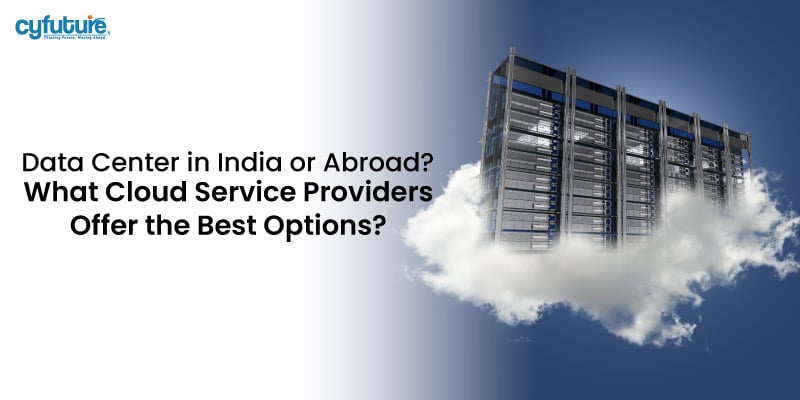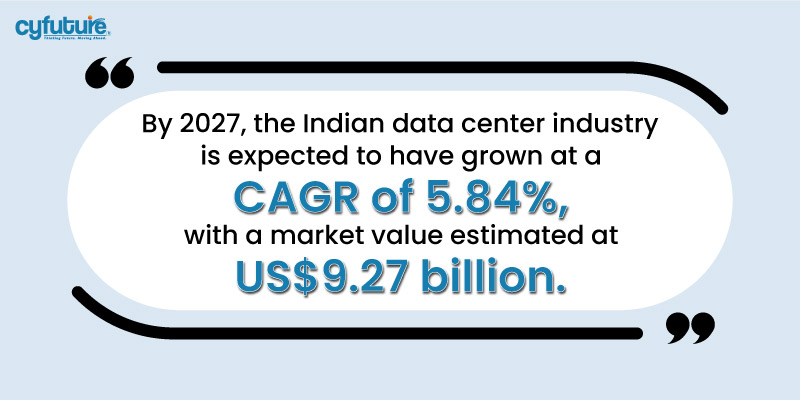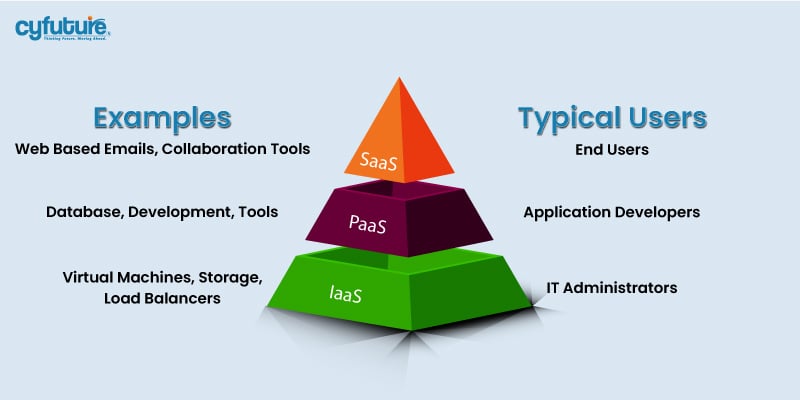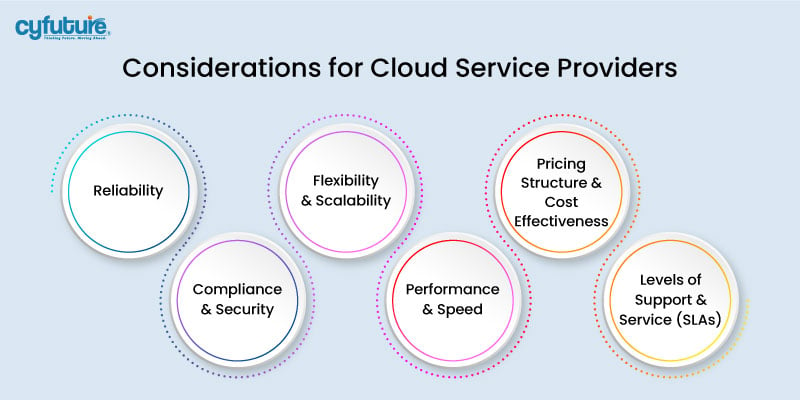-
Get Cloud GPU Server - Register Now!
Toggle navigation

Data is the new oil for businesses in the digital milieu, and they depend increasingly on strong infrastructure to store, handle, and process enormous amounts of information. Moreover, data centers create the framework for modern services and applications by offering the networking, processing, and storage capabilities needed. An enormous rise in the need for scalable, secure, and reliable data storage systems has been caused by the exponential growth of digital information.
The efficiency, agility, and profitability of a business may also be significantly impacted by choosing the correct data center and cloud service provider. But with the abundance of possibilities, where does one even start when choosing the ideal data center? Furthermore, is there a significant distinction between hosting data in India and anywhere else in the modern, globalized world?
Understanding the underlying dynamics that influence the data center and cloud service provider industry is crucial as we delve deeper into this complicated realm. Several factors influence the decision-making processes, from infrastructure capabilities and service offerings to regulatory frameworks governing data sovereignty.
However, let’s take a look into a few stats and data before delving deep.

With a focus on local and global perspectives, this blog will explore the challenges involved in choosing a data center. In examining the products and services provided by well-known cloud service providers and exploring the intricacies of data center design, we seek to arm consumers and companies with the knowledge they need to make informed decisions in a world that is becoming more linked by the day.
The hub of the digital world, data centers house the hardware needed to distribute, store, and analyze vast amounts of data. A data center is essentially a building that holds the IT operations and hardware for a company, including servers, networking devices, storage systems, and other items. It is impossible to overstate their significance in the current digital economy as they enable businesses to operate efficiently, grow swiftly, and provide clients with flawless digital experiences.
A variety of data centers in India meet different needs and preferences.
Colocation data centers in India give businesses the room, power, and air conditioning they need to house their servers and IT gear. Renting space in a colocation facility allows businesses to benefit from shared infrastructure without having to build and manage their own data center.
A company’s IT infrastructure is managed by a third-party supplier under the terms of managed cloud hosting. These service providers oversee the daily management of the data center in India, including software updates, hardware upkeep, and security oversight, allowing businesses to concentrate on their core competencies.
Cloud-based data centers in India use virtualization technologies to disperse computer resources, such as servers, storage, and networking, over the Internet. Because of these data centers’ remarkable scalability, businesses may dynamically adjust how resources are allocated in response to demand. Cloud service providers enable businesses to pay for computer resources on an as-needed basis by offering a range of services including Infrastructure as a Service (IaaS), Platform as a Service (PaaS), and Software as a Service (SaaS).
The extraordinary scalability, flexibility, and cost-effectiveness of cloud computing has revolutionized the way enterprises operate. Enterprises used to rely only on on-premises infrastructure, which came with hefty upfront costs and ongoing maintenance obligations. That paradigm changed, though, when cloud computing emerged and made computer resources available online whenever needed.
Modern technology is now more widely accessible thanks to cloud computing, which frees up capital for businesses of all sizes to take advantage of scalable infrastructure. Innovation has been stimulated by this shift, enabling companies to test out novel ideas and launch products more swiftly. Employees may now access data and apps at any time, anywhere, thanks to cloud computing, which has also improved remote work and collaboration.
Several prominent companies hold a dominant position in the cloud service provider market, offering a wide range of services tailored to meet the specific requirements of global corporations. These well-known vendors include:
Amazon Web Services (AWS): AWS is a cloud computing pioneer that provides a host of services, including databases, machine learning, storage, processing, and more. With services provided to a wide range of industries and companies worldwide, it has established itself as a market leader.
Microsoft Azure: Azure, the company’s cloud platform, offers an extensive range of services, encompassing applications, platforms, and infrastructure. Because of its strong emphasis on corporate integration and hybrid cloud capabilities, Azure has become a popular solution for businesses seeking a seamless link with current Microsoft technology.
Google Cloud Platform (GCP): Google’s vast infrastructure and expertise in data management and analytics are leveraged by Google Cloud Platform (GCP) to create innovative cloud solutions. Serving businesses of all sizes and industries, its offerings include computers, storage, machine learning, and data analytics.
IBM Cloud: Blockchain, IoT, AI, and other technologies are just a few of the services that IBM Cloud delivers to give businesses a competitive edge. For enterprises managing complex regulatory environments, IBM Cloud is a dependable partner with an emphasis on security and compliance.
These cloud service providers provide a range of services classified under three primary models:

Infrastructure as a Service (IaaS): This approach provides virtualized computer resources such as servers, storage, and networking, allowing organizations to install and manage their infrastructure in a scalable and flexible way.
Platforms as a Service (PaaS): PaaS products enable developers to design, deploy, and maintain applications without having to deal with the complexities of underlying infrastructure administration. This speeds up the development process and promotes creativity.
Software as a Service (SaaS): SaaS solutions provide software programs via the Internet on a subscription basis, removing the need for on-premises installation and maintenance. Users benefit from the ease, scalability, and automated upgrades with this model.
Due to a confluence of factors driving digital transformation across several industries, India’s data center market has experienced rapid growth in recent years. Data infrastructure is becoming more and more important to businesses in a variety of sectors, including banking and finance, e-commerce, and healthcare, to increase productivity and innovation. The industry of data center in India is growing quickly, thanks to significant infrastructure development expenditures made by both domestic and foreign businesses.
India has a growing need for data centers for several reasons. First off, a sizable digital ecosystem in need of processing power and data storage has been created by the nation’s quickly rising internet penetration, which is being driven by widespread smartphone use and inexpensive data plans.
A robust data infrastructure is becoming increasingly important as government-led digitalization initiatives like Digital India and the Smart Cities Mission propel the digitization of infrastructure and services. To further comply with data sovereignty regulations, firms are building local data centers due to stringent legislative requirements for data localization and privacy.
The proximity to a large client base, availability of local expertise, and substantial cost savings over hosting overseas are just a few benefits of hosting data in India. India’s infrastructure, however, varies widely; some regions lack even the most basic utilities, such as air conditioning and power, and physical security.
As companies find it difficult to understand regulatory frameworks and guarantee local data protection laws are followed, concerns regarding data sovereignty surface. Additionally, connection issues like capacity constraints and network latency are significant roadblocks, particularly for businesses that need seamless cross-border access and real-time data processing.
Consideration of several crucial elements is necessary to guarantee that the selected supplier fulfills the company’s aims and objectives.

It is the most important factor to consider when choosing a cloud service provider. To ensure constant access to their data and apps, businesses depend on cloud services. Strong service level agreements (SLAs) backed by a provider’s proven track record of reliability and uptime make them preferred.
Data security is the top concern for enterprises that entrust sensitive information to cloud service providers. Consider the provider’s security measures, including access controls, encryption methods, and compliance certifications (such as GDPR or HIPAA), to lower risks and ensure legal compliance.
As business needs increase, scalability becomes more crucial. Scalable solutions that can accommodate future growth and changes in workload without compromising performance or resulting in excessive costs are what a cloud service provider should provide. Moreover, public, private, and hybrid cloud deployment methodologies and services offer flexibility and let businesses customize solutions to meet specific requirements.
User experience and productivity are directly impacted by the functionality and speed of cloud services. Performance is affected by data transfer rates, network latency, and physical distance between data centers. Selecting a provider with a high-speed network design and worldwide reach provides global customers with exceptional performance.
Cost is a key consideration when selecting a cloud service provider. The pricing structure of the provider, including subscription plans, usage-based pricing, and any unstated costs (such as data egress fees), should be evaluated by businesses. A clear price structure by the organization’s spending plan and consumption patterns is necessary to reduce unforeseen expenses.
To solve issues and minimize downtime, prompt and trustworthy customer support is crucial. It is important to evaluate the support capabilities of the supplier, including response times, escalation protocols, and technical knowledge availability. Additionally, robust service level agreements (SLAs) that guarantee data availability, performance, and uptime show how committed the provider is to high-quality service.
Infographic Image – Emerging Trends of the Data Center Industry
The way that businesses manage and use their data infrastructure is being redefined by several recent developments in the rapidly evolving data center ecosystem. Trends like edge computing, hybrid cloud solutions, and sustainability programs present businesses with new challenges as well as opportunities.
The first method is edge computing, which processes data closer to the source to lower latency and boost performance for real-time applications. This trend is driven by the increasing number of Internet of Things (IoT) devices and the need for faster decision-making in critical applications such as smart cities and driverless automobiles. By placing computing resources closer to the network edge, organizations may increase their responsiveness and efficiency, while also enabling new use cases and promoting creativity.
The administration and security of local infrastructure are combined with the elasticity of public cloud services in hybrid cloud systems. By using this approach, businesses may maintain sensitive data and apps on-site or in a private cloud environment, while still taking advantage of the scalability and affordability of public clouds. The utilization of hybrid cloud is on the rise as enterprises endeavor to enhance their IT infrastructure, harmonize security and performance requirements, and facilitate seamless transitions of workloads between environments.
Data center operators need to give sustainability a priority in light of growing environmental concerns. Lowering carbon footprints and operating expenses increasingly depends on the use of renewable energy, energy-efficient equipment, and waste-reduction strategies. Environmentally conscious consumers and stakeholders are drawn to companies that operate sustainable data centers, which benefits the environment as well as their reputation.
We anticipate a dramatic transformation of the data center ecosystem from 5G networks and artificial intelligence (AI). Reduced operating costs and higher efficiency are anticipated from AI-powered automation, which will also improve predictive maintenance and streamline procedures and resource use. High-speed connectivity and edge data centers in India will become more and more necessary as 5G networks are implemented and IoT devices and edge computing applications continue to expand.
The choice of where to house data—in India or somewhere else—can have a big impact on a business’s productivity, adaptability, and profitability in a world where data is king. Businesses need to handle the multitude of options offered by cloud service providers and data centers in India as the digital world develops. It is essential to comprehend the underlying dynamics and emerging trends of the industry to make wise judgments that align with business objectives and legal obligations.
As the worldwide cloud computing market soars and the Indian data center industry is predicted to grow rapidly, businesses need to carefully weigh factors like cost-effectiveness, performance, scalability, compliance, and reliability when selecting a cloud service provider. In addition, as the data center ecosystem changes due to emerging trends like edge computing, hybrid cloud solutions, and sustainability initiatives, businesses seeking to future-proof their data infrastructure will face challenges as well as opportunities.
By keeping abreast of technological advancements and industry trends, as well as by using the expertise of reputable cloud service providers, businesses may position themselves for success in the rapidly evolving digital landscape. As we go further into this complex area, let’s explore the opportunities, seize the moment, and create the framework for a day when data serves as more than just a resource—rather, it will be a driving force behind innovation and advancement.
Are you ready to take advantage of your data infrastructure to the fullest? To find the finest solutions for your company, compare the offerings of leading cloud service providers. To start along the path to digital efficiency, reliability, and scalability, get in touch with us right now. Let’s collaborate to build a future in which data is unconstrained.
How can I select the cloud service provider that will work best for my business?
Reliability, security, scalability, performance, and affordability are all important considerations when selecting the best cloud service provider. Consider the particular requirements of your company, including growth projections, data sensitivity, and industry regulations, while assessing vendors. Seek out vendors who have a proven track record, robust security protocols, and a wide range of services that meet your unique needs.
Strong security mechanisms like encryption, access limits, multifactor authentication, and frequent security audits must be put in place to ensure the protection of your data in the cloud. Use cloud service providers with compliance certifications such as ISO 27001 and SOC 2 and industry-standard security protocols to protect your sensitive data. Additionally, to safeguard your data from unauthorized access, encrypt it both while it’s in transit and at rest.
The landscape of cloud computing is changing due to innovations including edge computing, hybrid cloud solutions, and sustainability programs. Companies need to consider how these advancements can impact their data operations and infrastructure. They should also be aware of these advances.